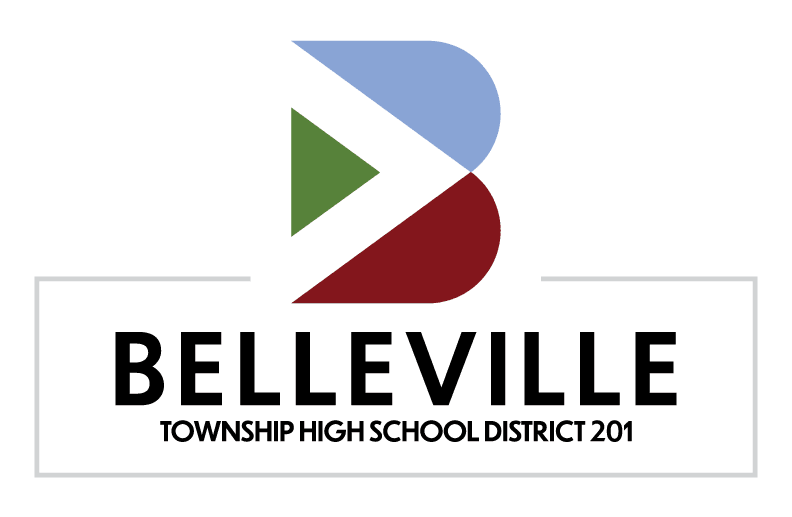Belleville West
Individualized Education

Department
Information
Course
Guide

Email A Teacher
- Kelly Baltz: kbaltz@bths201.org
- Stephanie Baltz: sbaltz@bths201.org
- Catherine Bess: cbess@bths201.org
- Nicholas Borkowski: nborkowski@bths201.org
- Sherand Boyd: sboyd@bths201.org
- Christopher Brown: chbrown@bths201.org
- Robert Dahm: bdahm@bths201.org
- Concha De La Cruz: cdelacruz@bths201.org
- Kristin DeMond: kdemond@bths201.org
- Brad Dietrich: bdietrich@bths201.org
- Teagan Ellis-Cross: tellis@bths201.org
- Christine Gooding: cgooding@bths201.org
- Chris Hanusek: chanusek@bths201.org
- Nathan Karlas: nkarlas@bths201.org
- Chelsea Kilzer: ckilzer@bths201.org
- Dana Koch: dkoch@bths201.org
- Valaree Logan: vlogan@bths201.org
- Katie Munden: kmunden@bths201.org
- Lisa Quandt: lquandt@bths201.org
- Kelly Schlueter: kschlueter@bths201.org
- Patton Segraves: psegraves@bths201.org
- Ryan Sisk: rsisk@bths201.org
- Katy Stinson: kstinson@bths201.org
- Tony Thompson: tthompson@bths201.org
- Tara Tieman: ttieman@bths201.org
- Nicole White: nwhite@bths201.org
Courses Offered
9th Grade
- English 1-2
- Introduction to Algebra 1-2C
- Geography 1-2
- Principles of Science 1-2 Health
10th Grade
- English 3-4
- Introduction to Algebra 3-4C
- Civics: Consumers and Government 3-4
- Principles of Science 3-4
11th Grade
- English 5-6
- Practical Geometry 5-6C
- U.S. History 5-6
- Pre-Vocational Training
12th Grade
- English 7-8
- Word Office Procedures
- Work Skills Education 7-8
- Cooperative Work Experience
9th – 12th Grade
- Reading
- Learning Strategies
- Human Relations and Communications
- Learning Strategies/Lunch OR Lunch/Learning Strategies
Cross Categorical Program
Students within this program typically have deficit areas in reading, math, written expression, and organizational skills. The classes are smaller (typically no more than 13 students) and the academic pace has been modified to fit the ability levels of the students.
Classes will likely include:
1. Intro to Algebra/Geometry: Some Math courses may be co-taught with regular ed. teacher in Title class
2. English: BTHS-West utilizes the Language Live program, with focus on Reading skill development.
3. Health: Health within the Cross Categorical program is typically for the Assisted Learning Program students (1st semester) and Level 1 Reading Level students (2nd semester).
4. Learning Strategies: Students within this program are provided academic and organizational support. The class is worth .5 credits (equivalent to an elective) and takes the place of an elective. Students should have all regular education classes (thought they are allowed to take one cross categorical classes). An IEP team decision can recommend a Full-Hour of LS for any student should there be a compelling argument do so.
5. Social Thinking Learning Strategies: Similar to Learning Strategies, this class receives support from the Speech & Language teacher. The SP&L teacher and the LS teacher work as a team to provide social skill training and experience. (*primarily students with Asperger’s, Autism, or Autisticlike tendencies)
6. ½ Hour Learning Strategies: Opposite the lunch hour, this 25 minute class provides an opportunity to work on assignments with the assistance of a teacher and a para-educator. It is worth .25 credit.
Exceptions may occur based on needed support. An IEP team will make placement / program decisions.
Assisted Learning Program
Students typically with Intellectual Disabilities and adaptive skill issues may receive support in the Assisted Learning program. They move room to room, but as a group. Academics and life skills are combined in each of their classrooms.
Emotional Disability Program
Instructionalized Education
Students within this program require intensive behavioral support. The class has 9th – 12th graders. The students have door-to-door transportation. The bus drops off at 8:35 and students are met by staff. The program utilizes a level system. As students make it to level 3 and 4 discussion occurs about classes out of the program. Social work support is provided for these students. Students leave at 2:30. The afternoon classes are shortened.
Resource Education
Students within this program require some behavioral support. They will have Human Relations & Communications and/or ½ hour Learning Strategies for academic and behavioral support. Students in this program are not required to have door-to-door transportation.
